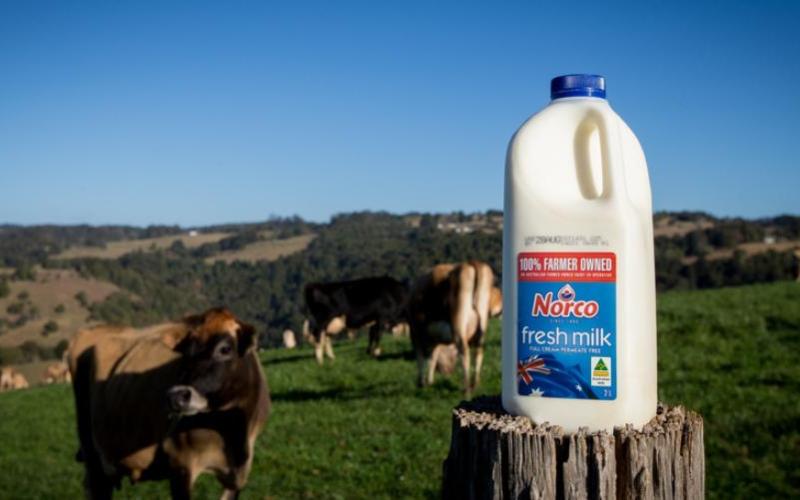Halyk Research presented recommendations for the development of the agricultural sector in Kazakhstan

“The government of Kazakhstan should focus on creating a business environment that promotes entrepreneurship, private investment, and business dynamism, where inefficient businesses are quickly replaced by efficient ones,” analysts say. Market mechanisms for the redistribution of capital and labor resources should automatically operate in the sector.
Government subsidies should be directed to projects to develop infrastructure and human capital in Kazakhstan's agriculture. In contrast to direct subsidies to agricultural producers, which distort market mechanisms, there is a wealth of research showing the high economic returns from public investments in innovation, water management, roads, markets and other infrastructure in agriculture. Government support in the form of funding for R&D, as well as extension services and the transfer of technology and know-how, typically provides one of the highest rates of efficiency of all public investments in rural development.

In the agricultural sector of Kazakhstan, there is an urgent need for an independent assessment of the impact of government support on market mechanisms and competition. The role of the state in the program for the development of the agro-industrial sector should be limited only to measures to eliminate the so-called “market failures”.
Such an assessment should address the following questions: Will this government action improve or worsen competition and market mechanisms in agriculture? What market failures does this measure target? Will this measure address market failures permanently without further government involvement or assistance (that is, is this measure a structural change)?
It is important to stop the policy of import substitution (policy of food self-sufficiency) in agriculture. From a food security perspective, the government's main concern should be the ability of low-income people to pay for food.
“Kazakhstan has an open economy and reliable foreign trade relations, so the physical availability of food for the population is not a problem... The government should redirect measures for import substitution and the protection of domestic agricultural producers to expand the export of competitive agricultural products. The most important thing is to ensure that Kazakhstan’s food export volumes significantly exceed import volumes,” analysts say.
According to Halyk Research, agriculture should specialize only in products in which Kazakhstan can be competitive in foreign markets. There is no need to produce a product if it is not competitive with cheaper, higher quality imports. If prices for imports of agricultural products are subsidized by another state, there are tariff measures for this purpose permitted by the WTO.
Fundamental land reform is needed in Kazakhstan. Land reform should begin with the introduction of a full-fledged cadastral system for registering land rights. Information about ownership and lease of agricultural land should be completely transparent and accessible to everyone.
Analysts also note the need to conduct reliable monitoring of the use and quality of agricultural land on an ongoing basis. Those owners who do not use their agricultural lands or use them for other purposes must suffer financial penalties.
After implementing the above measures, which will ensure full transparency of the ownership and use of agricultural land, it will be much easier to introduce private ownership of agricultural land and develop a market for the purchase and sale of land.
The Kazakh authorities have repeatedly said that agriculture should replace the oil industry and become a new driver of economic growth. However, as noted earlier, in terms of state budget revenues and expenditures, the agricultural sector receives much more government assistance than it pays in taxes. At the same time, tax preferences in agriculture have not led to the desired development of agriculture.
The preferred policy would be to align agricultural taxation in Kazakhstan with that of the manufacturing sector.
To solve problems with tax evasion in agriculture, it is necessary to accelerate the process of introducing universal declaration of income and expenses for all individuals in Kazakhstan.
A key problem that greatly affects the expansion of market lending to agriculture is government lending to farms at rates below market rates. Moreover, preferential lending represents unfair competition on the part of the state, and it instills a perception among agricultural producers that market interest rates are unfair.
It is necessary to immediately stop lending to businesses and households at rates below market rates, especially for loans from development institutions. Analysts note: “If the government wants to support a certain sector of the economy with cheaper financing, then it can do this, but without disrupting market relations in the financial system. To do this, it must subsidize the market interest rate from the state budget directly to the borrower in much the same way as the Damu Fund does today.”
To ensure that competition and market pricing in the financial system are not disrupted, banks and development institutions must borrow money and issue loans exclusively on market terms. In this case, the borrower will seek a loan from banks and government development institutions only at market rates. In such a situation, banks will be able to replace development institutions in agriculture and will compete with each other to provide better conditions for agricultural producers. It should be noted, however, that such a system will not give the desired result without private ownership and a market for the purchase and sale of agricultural land, since land is the most important asset for agricultural producers, and it should be actively used as collateral for market financing.
It is necessary to strengthen cooperation with neighboring countries on the use of water resources. Considering climatic conditions, water shortage is one of the most important problems in agriculture in Kazakhstan. In cooperation with neighboring countries, it is necessary to develop and implement agreed action plans based on the equitable and efficient use of transboundary rivers and lakes.














